Sexual Assaults on Campus

For most young adults, heading off to college is a rite of passage filled with exciting opportunities, new friends, and fresh challenges. But for victims of sexual assault, the dream can become a nightmare in an instant.
Statistics show that more than six in 1,000 women will be sexually assaulted during their college years – and a new study estimates that the number could actually be closer to one in five. Alarming statistics – but even these staggering numbers fall short in conveying the emotional and psychological tolls that assaults can take.
The topic of sexual assault on college campuses has been covered heavily in the media recently. Given the dramatic impact that sexual assault can have on a victim’s mental health, we decided to dig deeper into this important issue, using data from The Campus Safety and Security Data Analysis Cutting Tool, in hopes of uncovering meaningful information and shedding light on a subject that is too often brushed under the rug. We focused on sexual assaults that occurred at non-profit schools with four-year programs and enrollment of 2,000 or more.
A few caveats: The statistics here are indicative of which schools actually report sexual assaults as opposed to where assaults most frequently occur. It’s also worth noting that having larger numbers of reports can reflect positively, as it may be attributed to greater awareness and improved reporting procedures. Finally, one can reason that in some cases, campuses where assaults are reported may reflect a supportive environment in which assault survivors feel empowered and safe coming forward.
Schools With the Most Reported Assaults
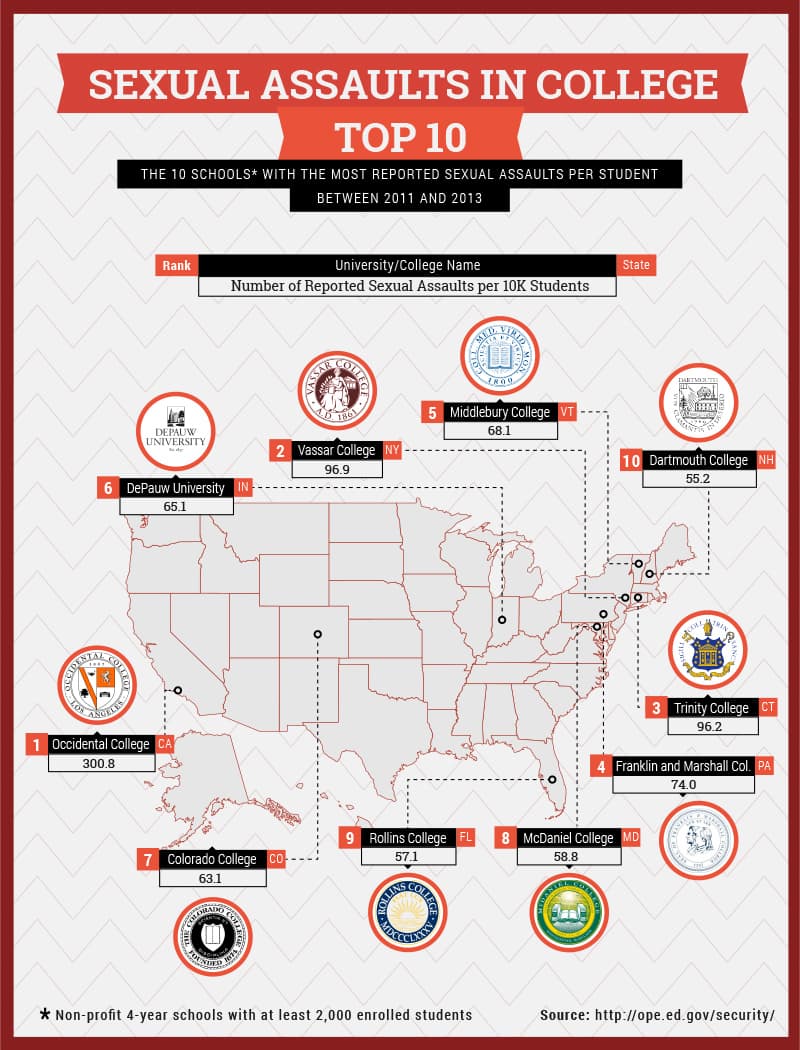
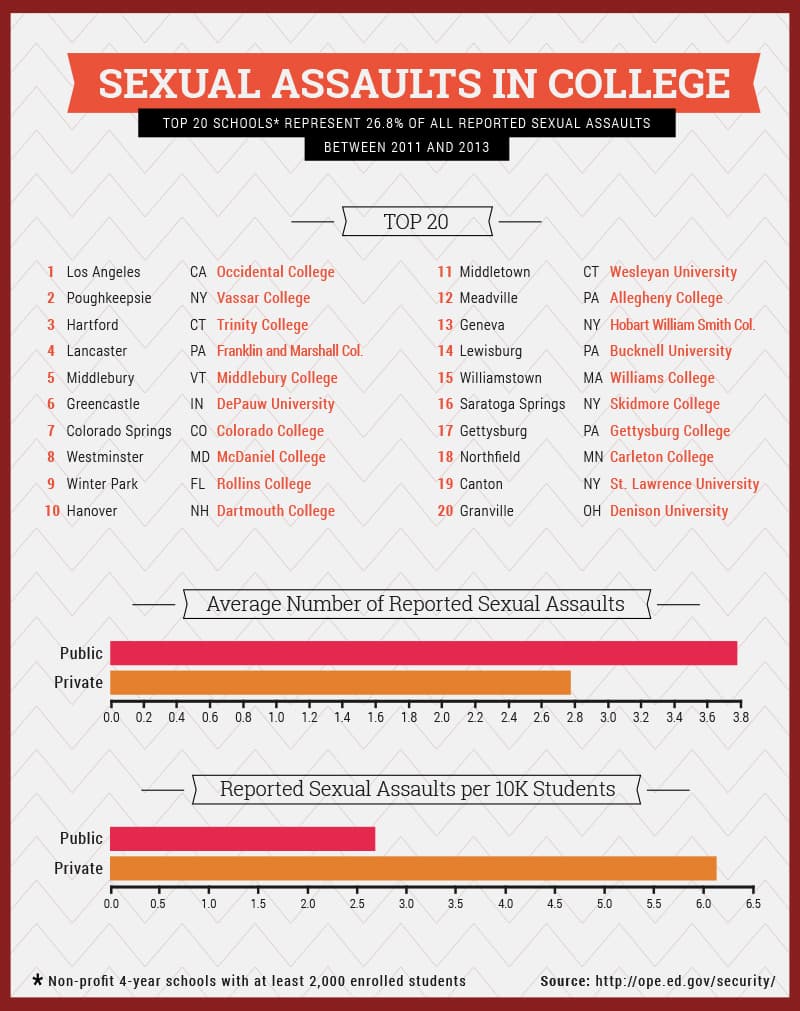
Seven of the top 10 schools are clustered in the East: Vassar College in New York (96.9), Trinity College in Connecticut (96.2), and Franklin and Marshall College in Pennsylvania (74), are second, third, and fourth, respectively.
The Midwest, South, and Southwest are only home to one school each in the top 10: DePauw University in Indiana (No. 6 with 65.1), Colorado College (No. 7 with 63.1), and Rollins College in Florida (No. 9 with 57.1).
One surprising stat: The 20 colleges with the highest numbers of reports actually represent more than a quarter of all reported sexual assaults. Public schools report around 35 percent more sexual assaults than private colleges. However, the concentration of assaults reported is more than double at private schools.
Where Exactly Do Assaults Occur?
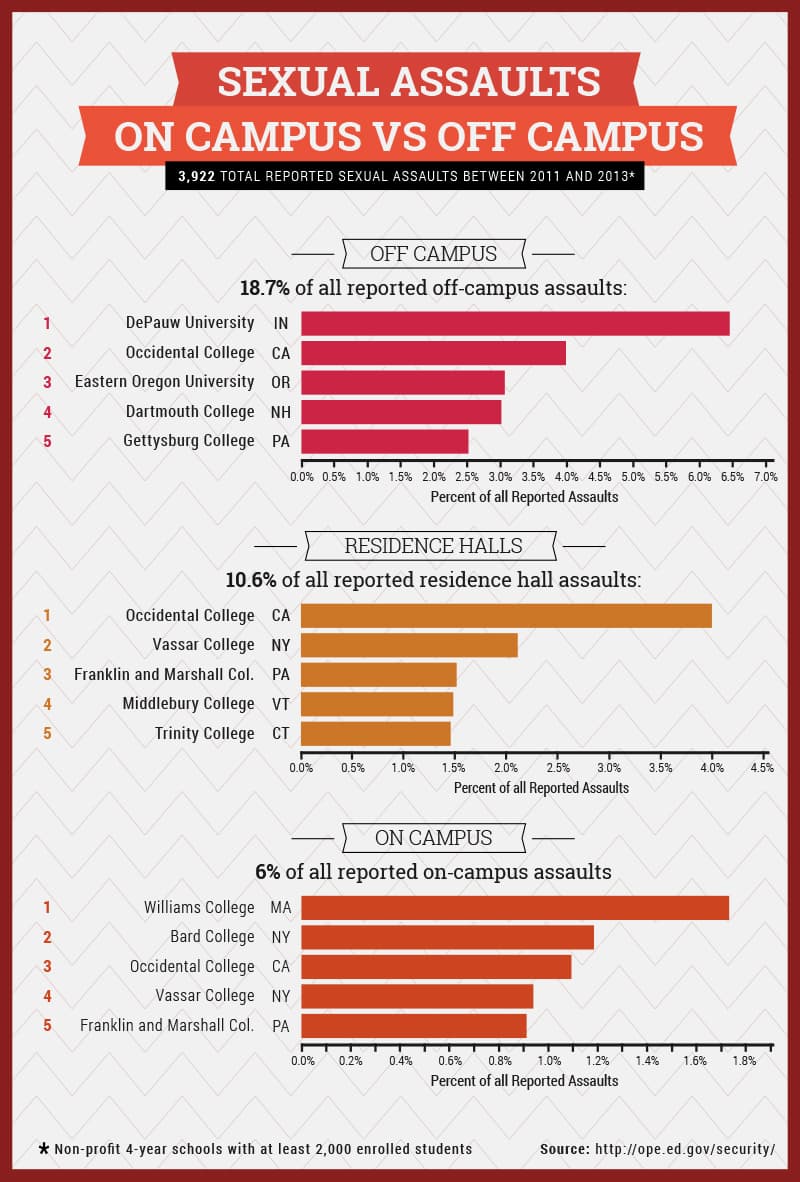
From 2011 to 2013, women reported 3,922 college-related sexual assaults. These occurred on campus, off campus, or in residence halls.
When it comes to off-campus assaults, the top five schools made up almost 19 percent of the reports. DePauw took the top spot, comprising nearly a third of those reports of assaults away from school.
The top five schools for assaults that occurred in residence halls comprised almost 11 percent of reports. Almost a third of these occurred at Occidental College.
Six percent of on-campus sexual assaults occurred in the top five schools. Williams College in Massachusetts was home to nearly a third of these.
Schools That Stay Silent
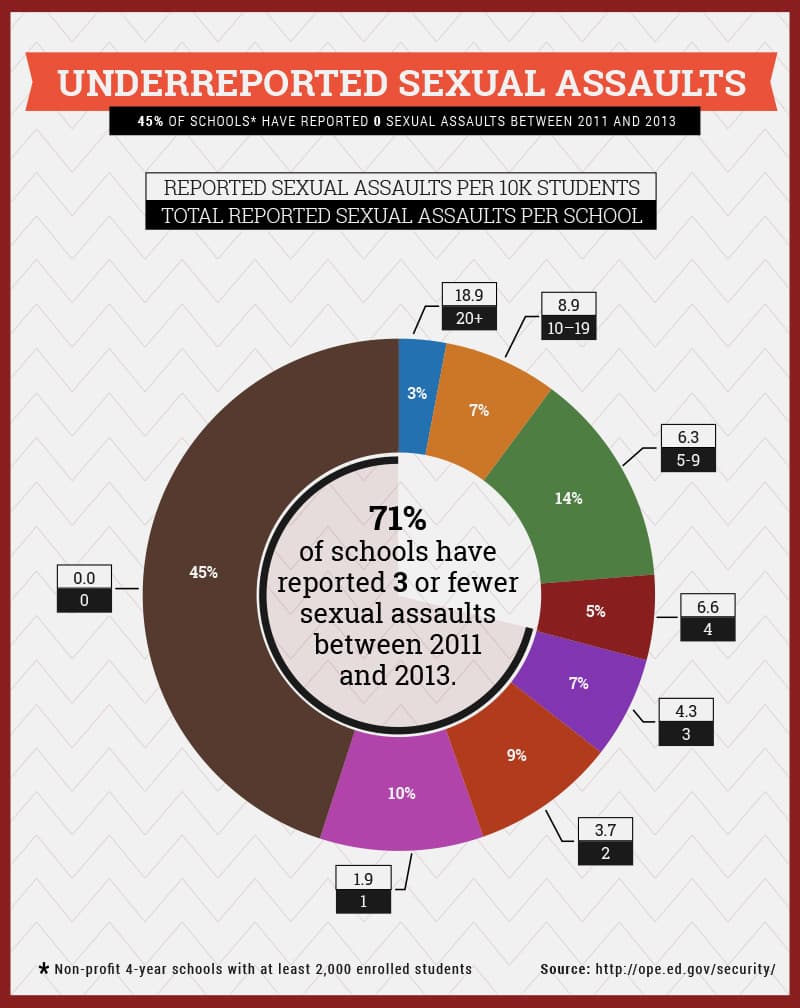
The reasons for underreporting of campus assaults vary – and can be complicated. Some schools may downplay assaults to avoid bad publicity. In other cases, college officials may simply encounter issues outside of their control, such as accused perpetrators withdrawing from school or assailants that couldn’t be identified by victims.
Sexual Assaults by State
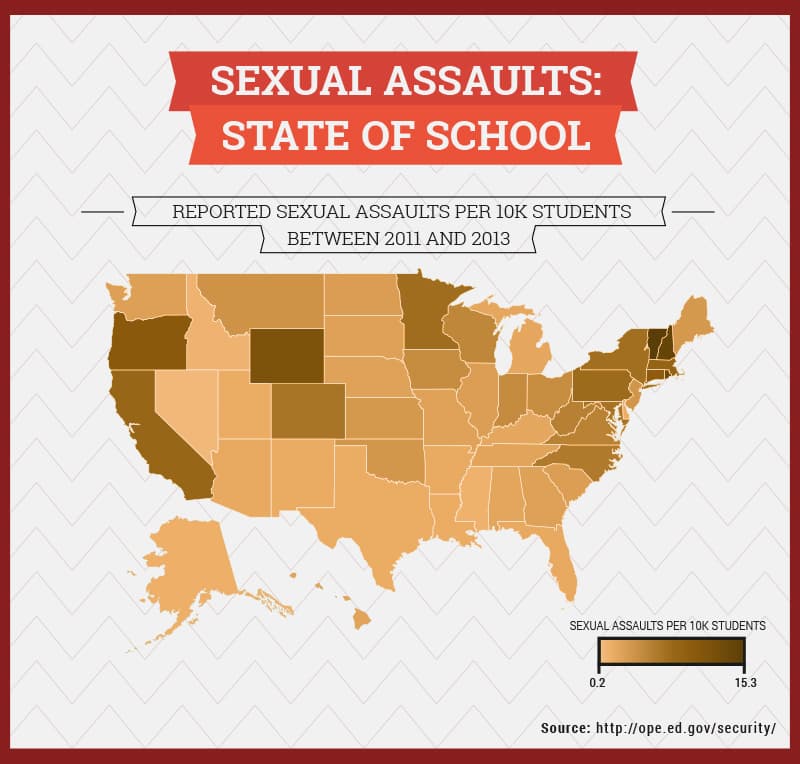
We then zoomed out to examine college sexual assaults from a geographic standpoint. On a state level, Vermont, New Hampshire, and Rhode Island were the top three locations for average reported sexual assaults per student. Four and five were surprising: Wyoming and Oregon.
Sexual Assaults by City
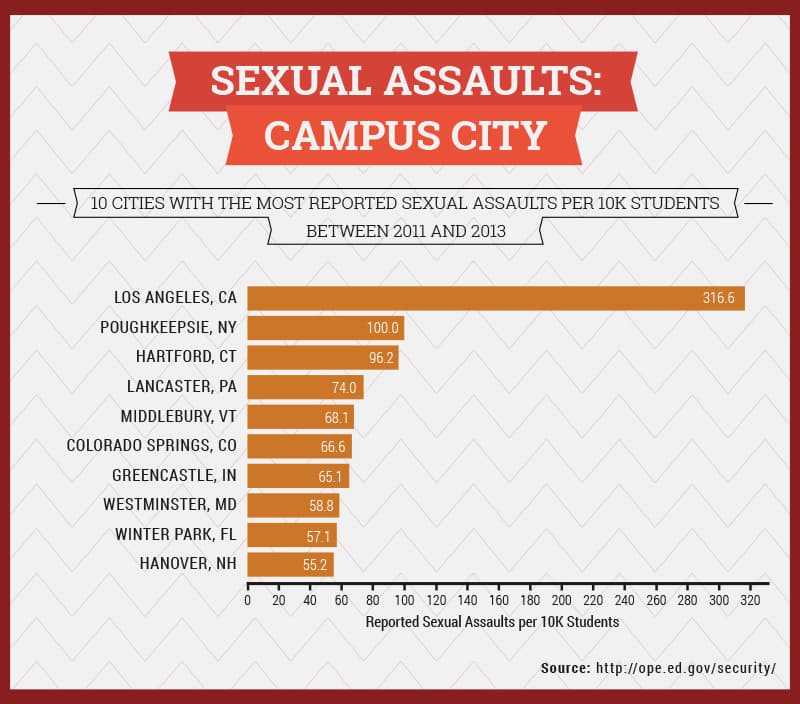
Overcoming a Sexual Assault
According to the American Psychological Association, sexual assault can lead to long-term anxiety and post-traumatic stress disorder, which is twice as likely among women than men. It can also attribute to depression and substance abuse. If you are a survivor of sexual assault, know first and foremost that it is not your fault. It is important to seek immediate medical attention and reach out for help from trained professionals who can guide you through the reporting as well as healing process. Call the National Sexual Assault Telephone Hotline at 1-800-656-HOPE (4673) to be connected with a trained staff member from a sexual assault service provider in your area.
Methodology
Using data from The Campus Safety and Security Data Analysis Cutting Tool, we looked at sexual assaults at non-profit schools with four-year programs and at least 2,000 enrolled students. State- and city-level data were based on the listed location of the main campus for each school. We took the total number of sexual assaults between 2011 and 2013 and divided it by the total number of enrolled students at the school to determine per-student numbers.
Sources
http://ope.ed.gov/security/
http://www.lamag.com/longform/trouble-oxy/#sthash.Kgq7a55u.dpuf
http://www.washingtonpost.com/sf/local/2015/06/12/1-in-5-women-say-they-were-violated/
http://www.bloomberg.com/news/articles/2015-01-29/almost-a-quarter-of-reported-sexual-assaults-at-colleges-don-t-get-hearings
https://www.psychguides.com/guides/ptsd-post-traumatic-stress-disorder/
http://www.apa.org/topics/sexual-abuse/
Fair Use
Feel free to share the images found on this page, and please attribute the creators of this project by linking back to PsychGuides.com and this page so your audience can learn more about this research and have access to any additional information.
